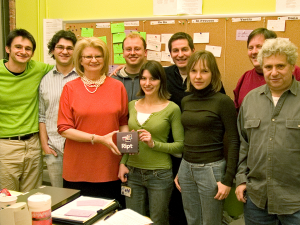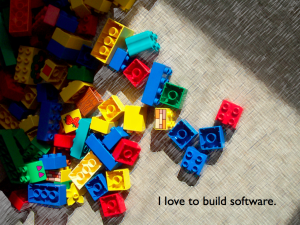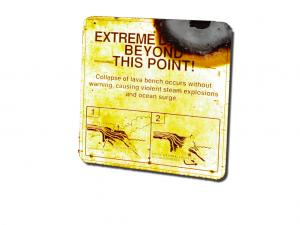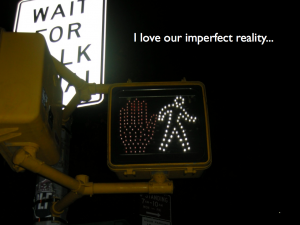At Agile NYC I presented a pecha kucha. 20 slides. 20 seconds per slide. This is the fourth and final part.
Angel on your shoulder
 Agile values call for honesty and trust. A shared ambition to do better and be better while causing each other less unnecessary pain.
Agile values call for honesty and trust. A shared ambition to do better and be better while causing each other less unnecessary pain.
I try to remember this in one on ones, retrospectives, coaching and in reflecting on my own decisions and actions.
The great thing about these values is that even as you strive towards them your co-workers will give you permission to demand more of them.
Just as they will demand more of you.
 This demand gives you an angel on your shoulder. Watching you as you work. It inspires even as it shames you into substantial actions that go against your nature. And you do this because your team needs you to.
This demand gives you an angel on your shoulder. Watching you as you work. It inspires even as it shames you into substantial actions that go against your nature. And you do this because your team needs you to.
You invest in the hard daily work of adjusting your own bad habits one behavior at a time in the interests of the people you work with and the work you do together.
This isn’t easy. It’s mortifying. It’s scary.
 But the reward is that you get to be the same person with your boss that you are with your peers that you are with your staff.
But the reward is that you get to be the same person with your boss that you are with your peers that you are with your staff.
The reward is that you get to work at your best with other people working at their best.
And you carry that potential with you as you move on to other projects and other teams.
 Ultimately, I want more than success on a project or in a particular job. I want a career.
Ultimately, I want more than success on a project or in a particular job. I want a career.
I want to be proud of my accomplishments and I want to be proud of who I was as I attained them.
I want to spend my life loving what I do.
And I want to build things that are useful and delightful to people.
The main goal has always been to understand the stuff of the universe, to consider problems based on human solution, and to follow through to a finished product.
Existential delight has been the reward every step of the way…
— Samuel C. Florman
The existential joys of agile practice
- A family tradition of care and craft
- I want to live in our imperfect reality
- People over process
- Angel on your shoulder


 The oozy failure wrapped in the chocolatey success of agile is when we focus on process mechanics and lose sight of people.
The oozy failure wrapped in the chocolatey success of agile is when we focus on process mechanics and lose sight of people.

 We preclude the best in an attempt to avoid the worst and ensure mediocrity.
We preclude the best in an attempt to avoid the worst and ensure mediocrity.
 As agile becomes popular it becomes a buzzword. It gets promoted as a tool that solves problems when at its heart it is a set of values that encourage you to confront problems.
As agile becomes popular it becomes a buzzword. It gets promoted as a tool that solves problems when at its heart it is a set of values that encourage you to confront problems.

 Where the customer doesn’t entirely know what will succeed… Where they aren’t entirely steeped in the technology…
Where the customer doesn’t entirely know what will succeed… Where they aren’t entirely steeped in the technology…
 And process gates (“handoffs”) kill collaboration.
And process gates (“handoffs”) kill collaboration.
 I want to live in our imperfect reality.
I want to live in our imperfect reality.
 I accept failure if we call it out as we recognize it, applaud the attempt and make changes so that we don’t repeat that exact failure again.
I accept failure if we call it out as we recognize it, applaud the attempt and make changes so that we don’t repeat that exact failure again.
 My mother is college educated but made her living through physical labor. She made valances on fancy drapery and upholstered fine furniture.
My mother is college educated but made her living through physical labor. She made valances on fancy drapery and upholstered fine furniture.
 My father is a retired engineer.
My father is a retired engineer.
